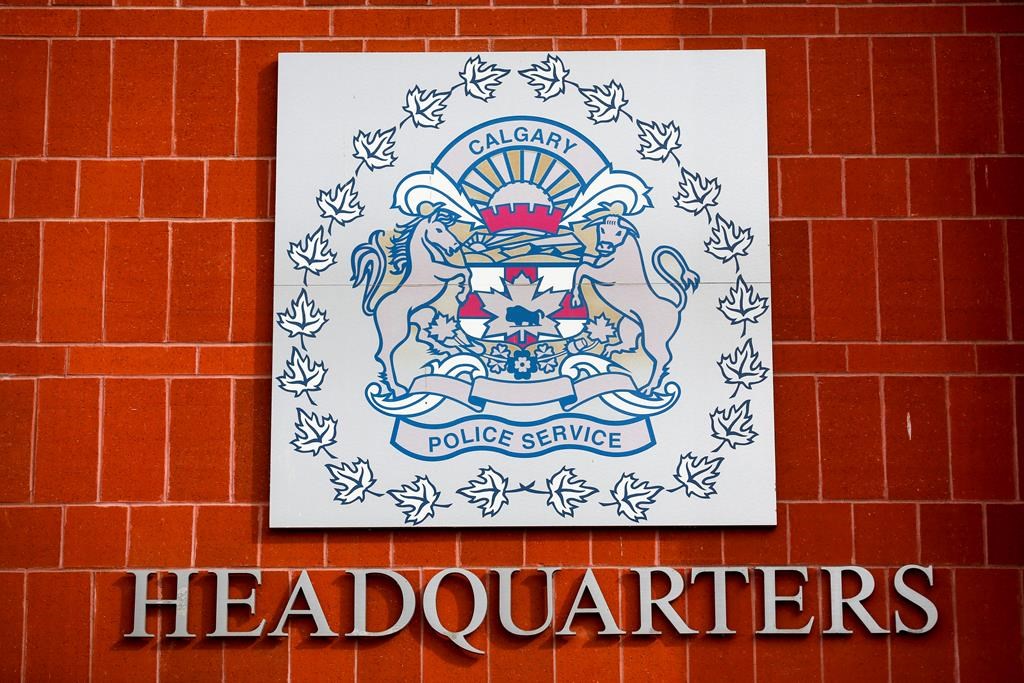The Calgary Police Service are doing a good job — especially during the pandemic — but there’s room for improvement. That’s what the results of the latest citizen satisfaction survey suggest.

The survey was presented to a public meeting of the Calgary Police Commission on Tuesday. The commission also heard about how info posts from street checks will be collected and how the CPS changed some of its practices during the coronavirus pandemic.
A vast majority of Calgarians — more than 93 per cent surveyed — feel that the city is a safe place to live, are satisfied with CPS services and are confident in CPS’ ability to maintain safety.
Illegal drugs and break-and-enters remain the major concerns for Calgarians, with general violent crimes, domestic abuse and traffic violations seeing big jumps in concern.
And for the first time in the citizen satisfaction survey, Calgarians were asked about whether they trust CPS — 85 per cent said they do.

“In this time that we’re having with the COVID-19 pandemic and all of the change and uncertainty, that CPS really did come through and successfully made changes to its service delivery that allowed them to maintain or improve on citizen trust, confidence and satisfaction,” Illumina Research Partners vice-president Angela Storozuk told the commission.
The survey was conducted by Illumina between May 6 and July 3 via phone. The last satisfaction survey was done in 2018.

Following the death of George Floyd while in the custody of the Minneapolis Police Department, sentiment captured by the survey shifted.
Commission chair Bonita Croft said the commission was interested in seeing how Floyd’s death would affect the survey results.

Get breaking National news
“As everybody across the globe has learned more about the issues that were brought to the fore with George Floyd, certainly it is obvious that that is showing up in our survey and it is driving engagement in these questions,” Croft said Tuesday.
Illumina was able to divide the survey results between before and after Floyd’s death.
More people disagreed with the idea that police provide the same service to all Calgarians, that they make decisions based on facts, that police are ethical and police respond in a fair way with all segments of Calgarians.

More Calgarians surveyed said police do not handle people in crisis effectively and said officers do not use authority and force appropriately, when compared to 2018.
Through the entire survey period, results from Indigenous and Black Calgarians showed those ethnic groups tended to have poorer views of police.
“Almost three quarters — 73 per cent — of Indigenous and Black citizens have moderate to high in agreement that CPS is a service they trust. For other ethnicities, agreement was slightly higher and ranged from 84 to 93 per cent.”
Storozuk said all of the areas needing improvement are chronic underperformers, characterizing them as “guideposts.”
“All of these areas that we’re talking about — that are areas of lower performance or needed focus — are areas that historically have been low and have been areas of needed focus, so it’s not necessarily a change in what needs to be looked at,” Storozuk said.
Indigenous people and street checks
CPS Supt. Cliff O’Brien shared an update on the InfoPost system, intelligence and data gathered by officers during “officer contacts,” otherwise known as street checks.
O’Brien said CPS officers conducted 18,462 street checks in 2019, averaging about 1,500 per month or about three per day per police district.
Roughly 1,600 of those officer contacts were with members of the public that officers were able to visually identify as Indigenous, representing 13.9 per cent of street checks where race information was collected. According to the 2016 census, 3.8 per cent of Calgarians are of Indigenous ethnicity — including First Nation, Metis and Inuit.
Croft said the commission is looking for answers for why the disproportional representation.
“Most of the Indigenous contacts that we have are, in fact, people in the vulnerable sector,” O’Brien said about the overrepresentation.
CPS Chief Mark Neufeld said about 36 per cent of street checks done would be characterized as “vulnerable persons,” recognizing opportunities to look deeper into why so many Indigenous people are part of info posts.
“I think those are the checks and controls that we have in place that ought to ensure the integrity of that system.”












Comments